Princeton Environmental Institute is now the High Meadows Environmental Institute
The University announced October 29, 2020, that the High Meadows Foundation, a philanthropic organization co-founded by Judy and Carl Ferenbach III, a member of the Class of 1964, made a transformative gift to Princeton in support of environmental research and educational initiatives through the Princeton Environmental Institute (PEI), the University’s interdisciplinary center for environmental research, education and outreach.
PEI was renamed the High Meadows Environmental Institute (HMEI) in recognition of this historic investment in the University’s environmental activities. A dedication ceremony for HMEI was held in May 2022.
Download Visual Identity Assets
![]()
![]()
![]()
![]()
![]()
DOWNLOAD OUR LOGO (FOR LIGHT BACKGROUND)
![]()
![]()
![]()
![]()
![]()
DOWNLOAD OUR LOGO (FOR DARK BACKGROUND)
![]()
![]()
![]()
![]()
![]()
DOWNLOAD OUR ZOOM BACKGROUND
![]()
![]()
![]()
![]()
![]()
DOWNLOAD OUR POWERPOINT SLIDE TEMPLATE
An Enduring Commitment to Excellence in Environmental Research and Teaching
The High Meadows Environmental Institute is steadfast in its founding commitment to cultivating outstanding environmental scholarship at Princeton. For 25 years, the Institute has been integral to Princeton’s position at the forefront of understanding and solving our planet’s most urgent challenges by acting as a central resource for fostering interdisciplinary faculty-led research and building educational programs for the next generations of environmental leaders.
HMEI’s research initiatives, including the innovative Grand Challenges program, facilitate faculty-led collaborations that transcend departmental boundaries to develop inventive solutions to environmental issues related to the climate, energy, biodiversity, urban resilience and sustainability, and water scarcity. Today, HMEI also is at the forefront of the emerging fields of climate change and infectious disease, the environmental humanities, and environmental justice.
HMEI is home to the University’s world-leading educational programs in environmental studies, as well as Princeton’s largest undergraduate internship program. Each year, HMEI bestows minors in environmental studies to the next generation of scientists, policymakers, scholars and leaders.
We continue to build upon our legacy through collaborations with academic units at Princeton such as the Brazil LAB and the Center for Contemporary China, as well as with international affiliates such as the Potsdam Institute for Climate Impact Research and the Stockholm Resilience Centre (Earth Resilience and Sustainability Initiative). These partnerships allow HMEI to extend our reach to help solve environmental challenges around the world. The fate of our singular environment is a global problem in need of global answers.
The High Meadows Foundation’s support has significantly amplified HMEI’s activities, ensuring that the current work of our faculty and the future work of our students will continue to surpass the standards of innovation, robustness and comprehensiveness that the Earth and our global society need now and in the decades ahead.
Navigating the Pandemic: Responses & Achievements
In March 2020, faculty, research staff, students and administrative personnel transitioned to remote work after the University suspended in-person instruction and on-campus research operations due to the coronavirus pandemic. Faculty members, postdoctoral researchers and graduate students affiliated with the Institute were early contributors to the emerging body of research on the novel coronavirus, while faculty and students organized or took part in virtual seminars focused on the dynamics of the disease, its effect on our global society and ecosystems, and the economic and racial disparities the virus laid bare.
Our research and educational activities continued, albeit remotely. Annual events recognizing graduating seniors transitioned to virtual platforms and more than 120 undergraduates contributed to faculty-led research projects through the summer environmental internship program. Faculty and researchers continued to publish research and establish global collaborations related to climate change, energy, biodiversity, food and urban systems. Funded research activity increased significantly over the prior year’s levels, including new grants from the NSF, NOAA, Department of Energy, and USDA/NIFA, among others.
We headed into the fall 2020 semester with record-high enrollment in Environmental Studies (ENV) courses and with public events resuming virtually, including the Faculty Seminar Series. The timeline below provides additional detail on significant research, teaching and outreach activities through 2020.
March 2020
ENV courses involving 400 students shift to online instruction in response to a University-wide suspension of in-person instruction due to the coronavirus pandemic.
PEI professor Anu Ramaswami, through the M.S. Chadha Center for Global India, hosts a virtual two-day conference, “Urban Sustainability Transitions in India and the World: Advancing Science and Policy.” More than 450 people representing 22 countries register for the conference, which features 53 speakers across six panels.
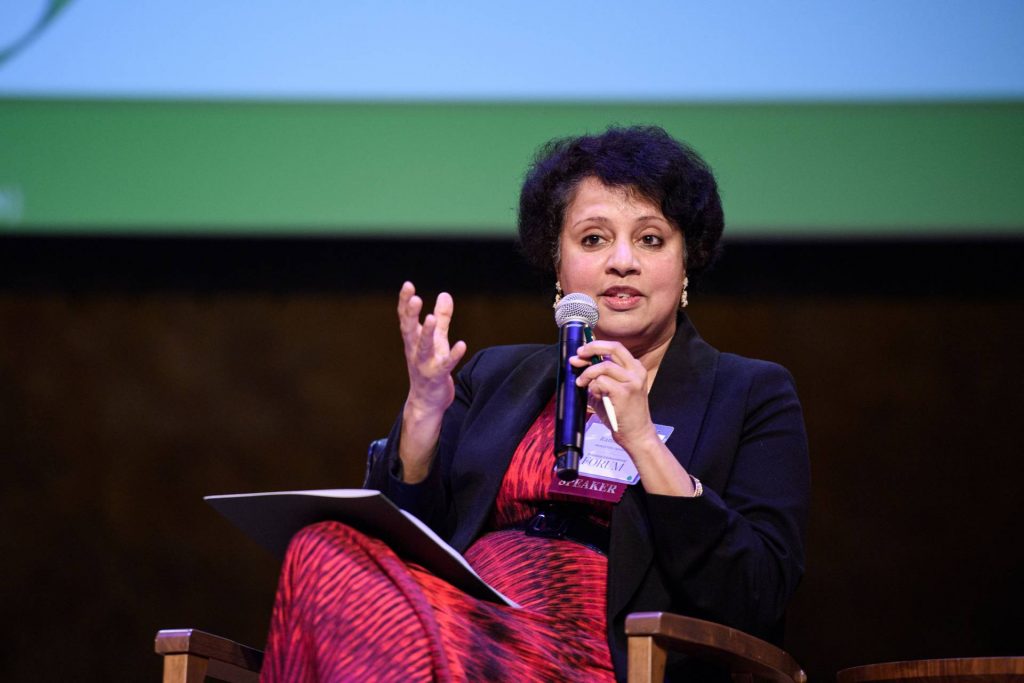

The PEI Climate and Energy Grand Challenge program awards $500,000 to seed faculty-led projects exploring topics such as the environmental impact of turbulence from offshore wind turbines and the effects of climate change on hummingbird sensory landscapes.
April 2020
Researchers affiliated with the Climate Change and Infectious Disease initiative publish a county-by-county analysis of the United States that identifies regions most vulnerable to the COVID-19 pandemic. Meanwhile, PEI faculty are featured in public events including the virtual panel discussions “Climate Change and Coronavirus” and “COVID-19 andAmazonia’s Future.” Six PEI associated faculty are among researchers funded by the University to accelerate solutions to challenges presented by the COVID-19 pandemic.


Undergraduate students share their experiences with the Program in Environmental Studies and the PEI internship program in a series of videos for incoming first-year students.
The Carbon Mitigation Initiative (CMI) Annual Meeting is held virtually. The 19th CMI Annual Report features highlights from CMI-based research activities, including early findings for the Net-Zero America Project.
PEI launches a new Graduate Certificate Program in Environmental Studies. Ph.D. candidates in the departments of history, Near Eastern studies, ecology and evolutionary biology, and civil and environmental engineering enroll.
Environmental studies students Jessica Lambert and Claire Wayner are among 13 college sophomores nationwide named 2020 Udall Scholars by the Udall Foundation based on their leadership, public service, academic excellence, and commitment to issues related to Native American nations or to the environment.


May 2020
Students in the Class of 2020 affiliated with or supported by PEI complete independent projects on a wide range of environmental topics, including climate science, biodiversity, the environmental humanities, and environmental policy and justice.


Graduating seniors in the environmental studies program and their parents join PEI faculty, researchers and staff for a virtual Class Day ceremony to recognize students in the Class of 2020 who earned certificates in environmental studies.
48% of students graduating in the Class of 2020 engaged with PEI during their time at Princeton through the environmental studies certificate program, ENV coursework, internships, and senior-thesis research.
PEI-affiliated researchers publish major studies related to sustainable food systems. A team based in the Center for BioComplexity reports that feeding the global population by 2050 will mean irrigating several billion more acres of farmland than previously projected. A second team finds that people with household gardens experience high levels of happiness, suggesting that gardens could be key to providing food security and making cities more sustainable and livable.
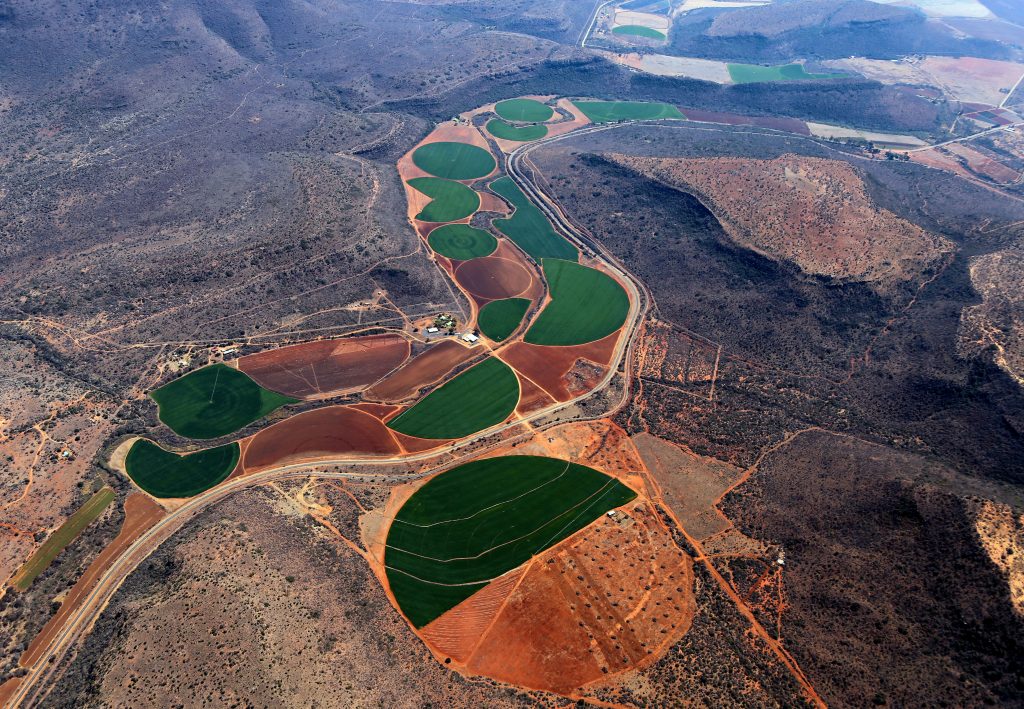

Princeton researchers supported by PEI report in the journal Science that the number of people still vulnerable to COVID-19 — and the speed at which the disease spreads — means that local climate conditions are not likely to dominate the first wave of the pandemic.
Fourteen Princeton Ph.D. candidates receive graduate research awards through PEI’s Hack, Walbridge and PEI-STEP programs to study topics related to carbon mitigation, pollution remediation, the environmental humanities, water and fluid dynamics, biogeochemistry, biodiversity and ecosystems, and environmental policy.
Princeton and PEI researchers report that asymptomatic infection can be a successful evolutionary strategy for pathogens such as the novel coronavirus.


June 2020
Research led by PEI professor David Wilcove solves a long-standing conservation puzzle by discovering that shorebirds overwhelmingly rely on tidal zones closest to dry land, which are most often lost to development.
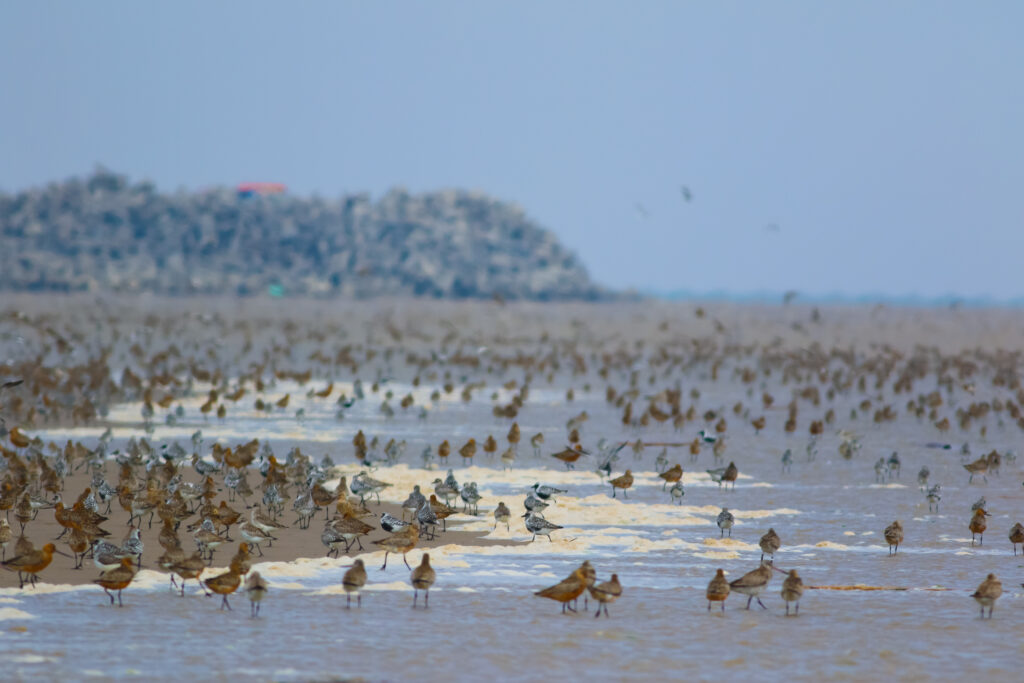

Lauren von Berg, Class of 2020, is first author of research published in Geophysical Research Letters that was based on her PEI internship studying the role of Antarctic sea ice in regulating the growth of phytoplankton, a key ocean nutrient.
July-August 2020
123 Princeton undergraduates take part in the PEI Environmental Internship Program through remote-work assignments with Princeton faculty, researchers from other scientific enterprises, government agencies, not-for-profit organizations and community groups around the world on a wide range of environmental topics.


The influence of PEI scientists in advancing the study of biodiversity is featured in a series about Princeton’s contributions to environmental research during the past 50 years, including in the areas of water, climate science and climate modeling, energy, and food.
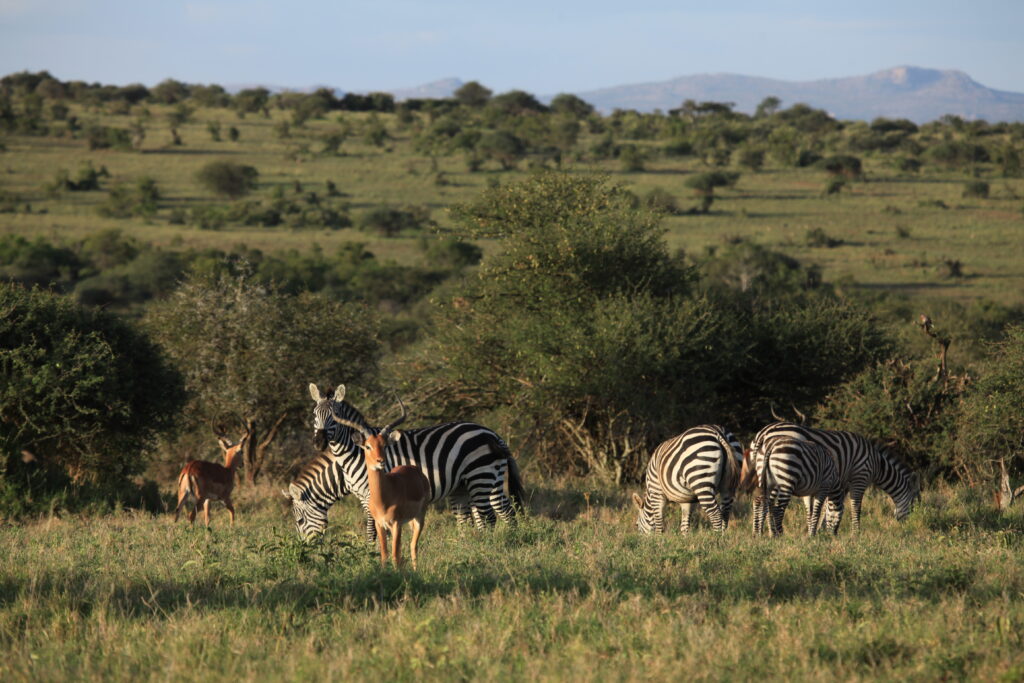

Photographer and former Barron Visiting Professor Fazal Sheikh is appointed PEI artist-in-residence to lead the interdisciplinary “Exposure” project, which engages environmental justice issues by documenting the visual, cultural and geophysical scars that extractive industries have left on public and Native American lands in the American Southwest. The project is co-led by Princeton professors Eduardo Cadava, John Higgins, and Mark Zondlo.
PEI hosts a two-day virtual workshop with research collaborators from the Potsdam Institute for Climate Impact Research and the Stockholm Resilience Centre focused on “Network Resilience, Sustainable Cities and the Global Food System.”


September 2020
PEI welcomes faculty members Reed Maxwell, professor of civil and environmental engineering and the Princeton Environmental Institute, and Jerry Zee, assistant professor of anthropology and the Princeton Environmental Institute, who bring to Princeton their respective expertise in watershed hydrology and the environmental humanities.


PEI senior research scholar Ramanan Laxminarayan publishes a landmark study of more than a half-million people in India who were exposed to the novel coronavirus, the largest COVID-19 contact-tracing study to date. The findings suggest that young people and a small percentage of those who become infected — known as superspreaders — may be key to the virus’ continued spread.
The fall semester resumes with instruction delivered remotely. More than 650 students enroll in ENV courses, including more than 150 in PEI’s flagship course, “The Environmental Nexus.”
The National Science Foundation funds a $1 million project led by PEI professor Reed Maxwell and others that will use artificial intelligence to simulate the nation’s natural groundwater system in an effort to improve groundwater management, as well as flood and drought preparedness.


PEI researchers report that the impact of natural and vaccine-induced immunity will be key factors in shaping the long-term trajectory of the global coronavirus pandemic.
The PEI Faculty Seminar Series resumes for fall 2020 as a virtual event series, featuring Princeton faculty discussing current topics in their environmental research.
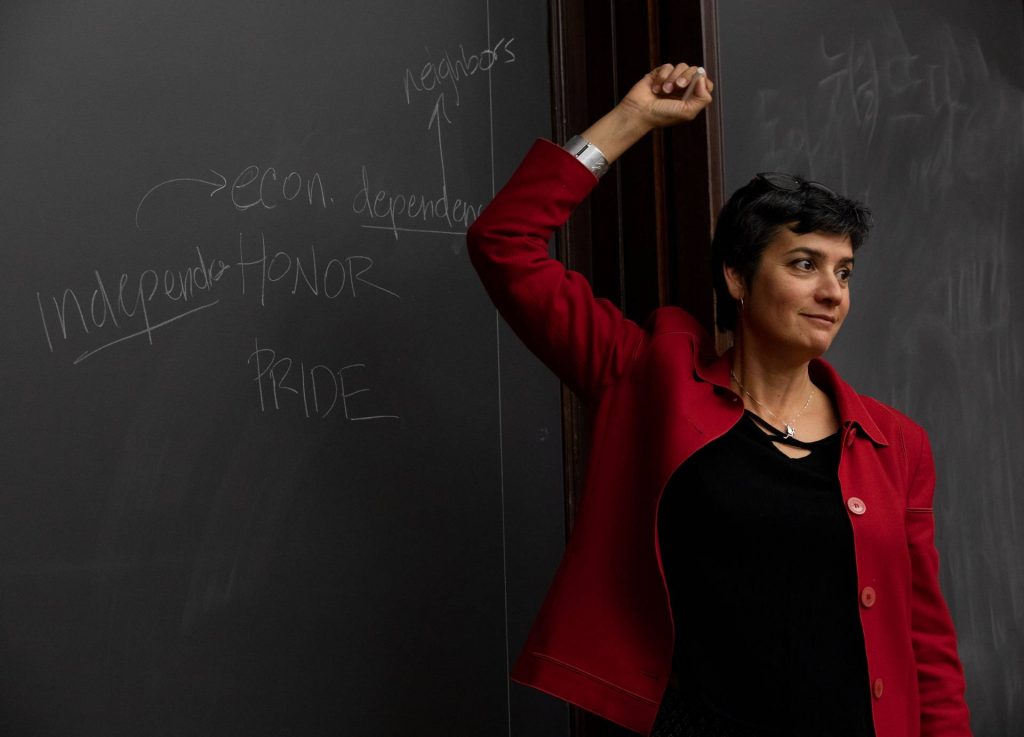

PEI professor Anu Ramaswami and PEI/Princeton-Mellon Fellow Dietmar Offenhuber organize the Fall 2020 Mellon Forum on the Urban Environment, a series of discussions focused on the post-pandemic city.
October 2020
PEI professor Amilcare Porporato leads the first study to assess the day-to-day reliability of solar energy under climate change. The researchers find that hot, arid areas such as the American Southwest that are currently considered ideal forsolar-power production could be less reliable in the future.


Research funded by PEI’s Princeton Energy and Climate Scholars (PECS) program finds that restrictive border policies could leave people fleeing rising seas, extreme heat and other climate change effects trapped in a cycle of environmental and economic peril.
The University announces that the High Meadows Foundation, a philanthropic organization co-founded by Judy and Carl Ferenbach III, a member of Princeton’s Class of 1964, has made a transformative gift to the University that will support environmental research and educational initiatives through PEI.


PEI is renamed the High Meadows Environmental Institute (HMEI).
November 2020
Princeton establishes the Thomas A. and Currie C. Barron Family Biodiversity Research Challenge Fund to significantly increase support for environmental research related to biodiversity. The Biodiversity Challenge program is based in HMEI as part of the Grand Challenges integrated research and teaching program.


Research led by HMEI professor David Wilcove finds that bushmeat consumption — which has devastated wildlife populations and been linked to the spread of diseases such as the Ebola virus — drops over time when people move from rural areas to cities. Children in urban areas also have less of a taste for wild game than their parents.
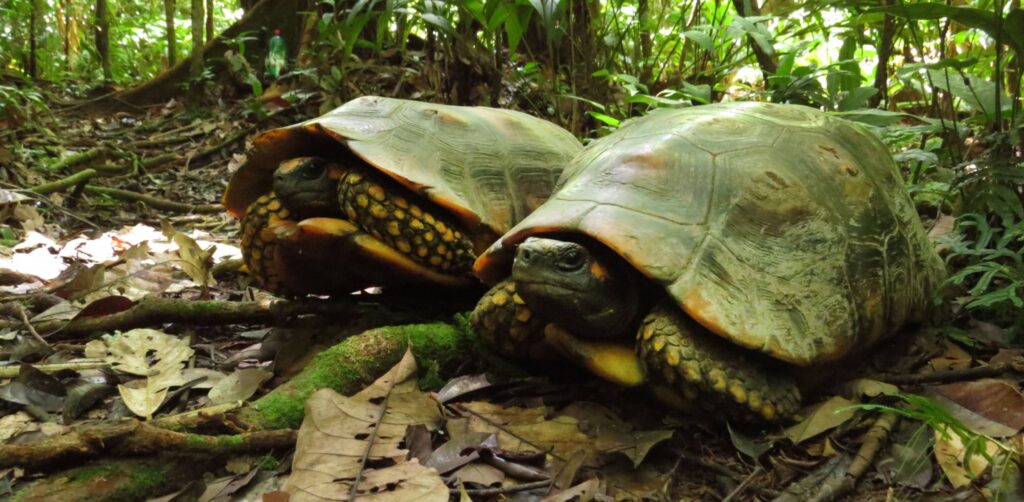

Researchers affiliated with the Climate Change and Infectious Disease initiative report that mask wearing, social distancing and other measures that are key to reducing coronavirus infection may increase people’s susceptibility to common respiratory infections such as influenza and respiratory syncytial virus (RSV), possibly resulting in large future outbreaks.
HMEI senior research scholar Ramanan Laxminarayan is elected a Fellow of the American Association for the Advancement of Science (AAAS) for his distinguished work related to economic epidemiology, particularly his research on the increasing resistance of disease-causing bacteria to antibiotics due to their overuse. Among other Princeton researchers named AAAS fellows in 2020 are HMEI associated faculty members Andrea Graham and Isaac Held.


December 2020
“Net-Zero America: Potential Pathways, Infrastructure and Impacts” — a landmark study by researchers affiliated with HMEI and the Andlinger Center for Energy and the Environment — provides a sustainable and achievable blueprint for the wholesale transformation of America’s energy system by 2050. A central focus of the Carbon Mitigation Initiative (CMI) for nearly two years, the study outlines in unprecedented detail five scenarios based on existing technologies that could achieve net-zero emissions over the next 30 years and greatly improve our chances of preventing the worst effects of climate change.


Princeton research led by graduate student Ciro Cabal and Professor Stephen Pacala, and supported by the Carbon Mitigation Initiative (CMI), finds that plants grow their roots based on their proximity to other plants, which ultimately determines how they perform functions essential to humans such as food production and the removal of carbon from the atmosphere.
A Princeton study supported by the Water and the Environment Challenge program reveals the mechanism by which microplastics such as Styrofoam and particulate pollutants are carried long distances through soil and other porous media. The study could help in preventing the spread and accumulation of contaminants in food and water sources.






